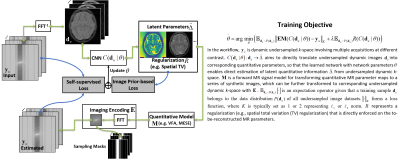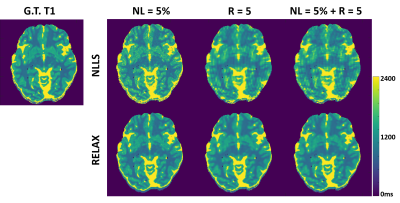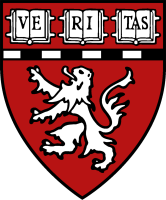Fang Liu1 and Li Feng2
1Radiology, Harvard Medical School, Boston, MA, United States, 2Radiology, Icahn School of Medicine at Mount Sinai, New York, NY, United States
1Radiology, Harvard Medical School, Boston, MA, United States, 2Radiology, Icahn School of Medicine at Mount Sinai, New York, NY, United States
This work developed a model-guided self-supervised deep learning MRI
reconstruction framework called REference-free LAtent map eXtraction (RELAX) to allow accelerated
quantitative imaging without training with reference data.

Figure 1: The schematic demonstration of the CNN framework implementing RELAX. A
cyclic workflow was constructed to enforce self-supervised learning. The
physics models and additional constraints can be incorporated into the
framework to guide the learning of CNN mapping function to extract the latent
image parameter maps from undersampled images.

Figure 3: Representative T1 maps estimated using RELAX in one simulated brain
dataset at three different experiment conditions, respectively. RELAX
successfully suppressed the noises at 5% noise level (NL) and removed the
undersampling artifacts at R=5 through self-supervised deep learning
reconstruction, providing image quality that is comparable to the
noise/artifact-free ground truth (G.T.) T1 map. The NLLS was applied to
zero-filling reconstructed images at R=5.
